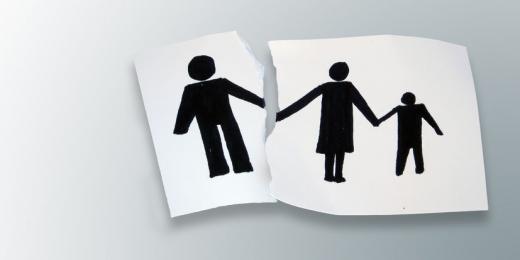Born British or Registration as a British citizen – paternity issues

While British Citizenship lawyers are often approached to discuss applications for naturalisation as a British citizen by adults, the British Citizenship of under 18s is also a key issue. While many people assume that British Citizenship is accorded automatically to children born in Britain, this is not the case. The reality depends on the status of the child’s parents – and as many Immigration lawyers will explain, even this is not always straightforward. In this blog, our London immigration solicitors look at being ‘born British’ and what happens where the child’s mother does not have settled status in her own right, is married to someone without settled status, but has a child with a British citizen.
Being Born British
The British nationality Act 1981 is the ‘go to’ piece of legislation for top London Immigration lawyers for matters concerning British Citizenship, certainly as far as being born British is concerned. Crucially, section 1(1) British nationality Act makes it clear that in order to be ‘born British’ one of the child’s parents must also be a British citizen or be settled in the UK. This can cause problems for children born in Britain, neither of whose parents are British or have sufficiently secure Immigration status so as to be ‘settled’ in the UK, particularly when the parents have taken no steps to secure the nationality of the child with their country of origin.
What may not be so well known but is viewed as a great injustice by many of the best Immigration solicitors in London is that the legislation itself takes a strict approach to parentage – in particular to who the ‘father’ of the child is, for British Citizenship purposes, and this too can cause complications and needless heartache.
Who is the ‘father’ for British Citizenship purposes?
The British nationality Act 1981 defines the ‘father’ of a child as the husband of the child’s mother – even if he is not the biological father of the child. This has come to light most recently in a story reported in some of the national newspapers about a 6-year-old boy refused back into the UK after travelling to Belgium and spending time there. Although his biological father is a British citizen, his mother, who does not have settled status, is still married to someone in Guinea. As a result, the child cannot be a British citizen. The biological father of a child can only pass on his British Citizenship if either he is also married to the child’s mother, or the mother is not married either to him or to anyone else.
Of course, this approach to paternity contravenes Article 8 of the European Convention on Human Rights and has been held as being incompatible by the high court in the case of K (A Child) v Secretary of State for the Home Department. Unfortunately, such a declaration does not automatically lead to a change in the law – the incompatible legislation remains valid until the law is changed by Parliament – and as Immigration solicitors will be only too well aware, this has not yet happened.
Registration as a British citizen
The rules around being born British can cause difficulties for children who would otherwise be able to claim British Citizenship through their biological father but are prevented from doing so by the terms of the British nationality Act because their mother (who does not have British Citizenship or settled status) is married to someone else. The alternative route to British Citizenship lies in being registered as a British citizen.
The Home Office has issued guidance covering a number of situations in which a child can be registered as a British citizen under the terms of the British nationality Act. It covers those born to British citizens living outside the UK, and those born in the UK and whose parents subsequently become British citizens or settled or children who have lived in the UK for the first 10 years of their life.
The British nationality Act also includes a discretionary power to register children as British citizens under section 3(1). The statutory requirements are that the child is
- Under 18
- Of good character, if over the age of 10; and
- that the Home Secretary thinks it fit to register them.
The guidance expands how the discretion should be exercised. In particular, it clarifies that where there is “…compelling evidence that someone other than the mother’s husband is the child's natural father…” that child should be registered as a British citizen under s.3(1) British nationality Act. Unless the biological father is named on the birth certificate, compelling evidence could include DNA testing or court orders.
Applying for registration as a British citizen under section 3(1)
The application for registration is not straightforward. It is a costly exercise – fees are £1,000 – and requires a complex application as well as the gathering of the necessary evidence. With so much at stake, getting it right may depend on engaging the best Immigration lawyers available.
Leading Immigration lawyers OTS Solicitors are recommended in the Legal 500 for Immigration law and will be able to assist you should you need to make an application for registration of a child as a British citizen – whatever the circumstances. Call us in confidence on 0203 959 9123 as find out how we can help.


